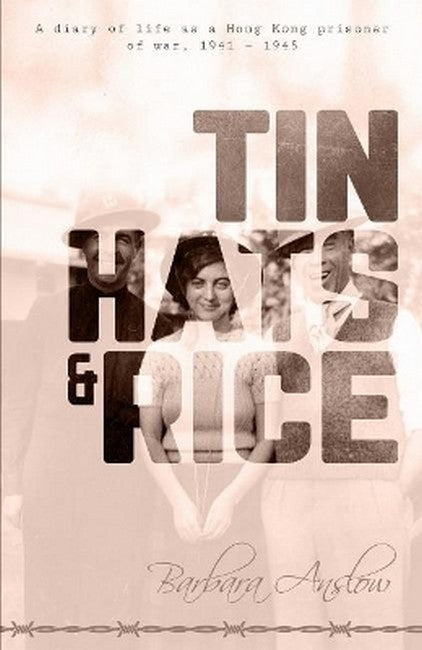Barbara Anslow was born in Scotland. In 1938 her family moved to Hong Kong where Barbara and her elder sister joined the government as shorthand typists. Her father died in 1940. Despite the risk of Japanese attack, and expatriate women and children being evacuated to Australia, Barbara and her mother and sisters decided to stay in Hong Kong; the alternative was to return to the UK which the Germans were bombing. So the family was caught in Hong Kong in 1941 when Japan attacked, and after the surrender they were interned for three-and-a-half years in Stanley Camp. There, Barbara worked in the hospital office, kept her diary, taught shorthand and wrote plays for the children to enact. After the war ended, she resumed her job with the Hong Kong Government until her marriage to Frank, whom she had first met in Stanley Camp. They had five children in Hong Kong. About ten years ago, Barbara read that war diaries were becoming popular: until then, no one but herself had seen her diaries. So she sent them to a Stanley group on the internet which posted them online. This reunited her with old friends from the camp. This publicity had some incredible results: an invitation to the Queens garden party at Buckingham Palace; a television interview on the 70th anniversary of VJ Day, after which she recited a war poem before Prince Charles and hundreds of Pacific War veterans; and a parade through London streets lined with cheering and waving crowds.
Description
Barbara Anslows wartime diaries bring Stanley Civilian Camp to life with such detail from deaths to dolls houses, disputes and dentistry. Not only do you feel that you are there, but almost that the camp and everyone in it still exists. Tony Banham, author of Not the Slightest Chance: the Defence of Hong Kong 1941 "She leads us through the fighting and surrender, the uncertain time that followed, then the move to Stanley Camp. ... Her diary records the dramatic incidents of internment like the bombing of the camp by American aircraft, but more often it details the daily activities and the ups and downs of life in cramped quarters. Struggles with roommates, hunger and sickness, and the worry that the Japanese wouldnt let the internees leave the camp alive all play a part." David Bellis, Gwulo.com "Without doubt the best (unofficial) diary to come out of Stanley Camp." G. C. Emerson, author of Hong Kong Interment 1942-45, Life in the Japanese Civilian Camp at Stanley

